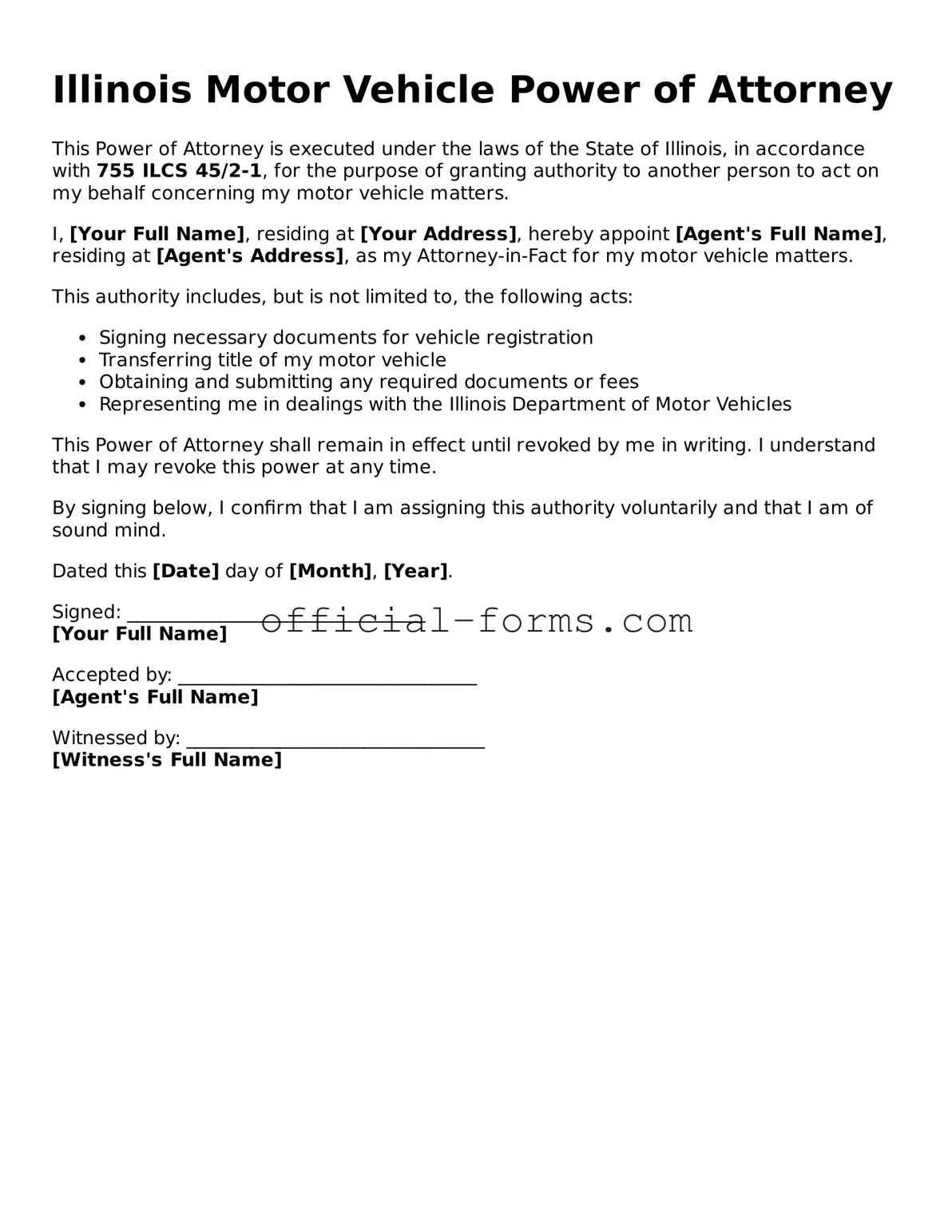Official Illinois Motor Vehicle Power of Attorney Document
The Illinois Motor Vehicle Power of Attorney form is a legal document that allows an individual to designate another person to act on their behalf in matters related to motor vehicle transactions. This includes tasks such as transferring ownership, registering vehicles, or obtaining titles. Understanding this form can simplify the process of managing vehicle-related responsibilities, ensuring that everything is handled efficiently and in accordance with state laws.
Open My Motor Vehicle Power of Attorney Now

Official Illinois Motor Vehicle Power of Attorney Document
Open My Motor Vehicle Power of Attorney Now
Don’t leave your form incomplete
Finish Motor Vehicle Power of Attorney online quickly from start to download.
Open My Motor Vehicle Power of Attorney Now
or
➤ PDF
